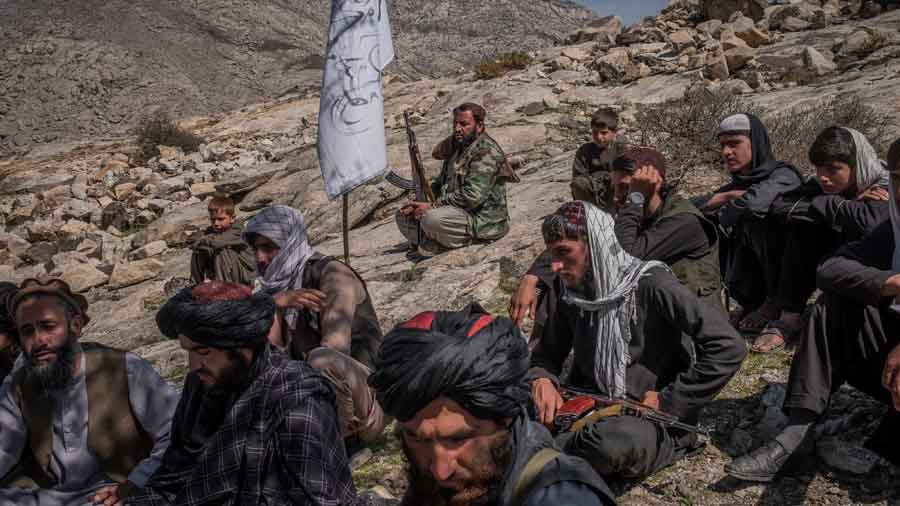A surge of Taliban wins in northern Afghanistan has caused some countries to close their north Afghan consulates, while across the border in Tajikistan reservists are being called up to reinforce its southern border, according to officials and reports on Tuesday.
Nearly 1,000 Afghan soldiers have fled the Taliban advances by crossing the border into Tajikistan, according to reports from Tajikistan.
A statement on Monday from the Tajik government said President Emomali Rakhmon has ordered the mobilisation of 20,000 military reservists to strengthen its border with Afghanistan.
The Afghan military exodus comes as Taliban overrun most districts in northeastern Badakhshan province.
Many of the districts collapsed without a fight but along the province’s northern border with Tajikistan, hundreds of Afghan National Security and defence forces crossed the border seeking safety.
The consulates of Turkey and Russia have reportedly closed in Mazar-e-Sharif, the capital of northern Balkh province, and Afghanistan’s fourth-largest city. Iran said it has restricted activities at its consulate in the city. There has been fighting in Balkh province, but the provincial capital has been relatively peaceful.
The consulates of Uzbekistan, Tajikistan, India and Pakistan have reduced their services, Balkh provincial governor’s spokesman Munir Farhad said on Tuesday.
He said Turkey and Russia had closed their consulates and their envoys had left the city.
The Tajik government said Afghan troops were being allowed to cross on humanitarian grounds but the border posts on the Tajik side were in control of Tajik forces and there was no fighting with Taliban from the Tajik side.
Moscow also weighted in on Monday with Kremlin spokesman Dmitry Peskov saying there is “heightened concern” over the fighting but Russia has no plans to send troops to assist its former republic.
“We have repeatedly said many times that after the withdrawal of the Americans and their allies from Afghanistan, the development of the situation in this country is a matter of our heightened concern,” Peskov said.
“We’re monitoring it very closely and are noting that destabilisation (of the situation) is taking place, unfortunately.”
Meanwhile, Tajikistan’s state news agency Khovar counted 1,037 Afghan military personnel who entered Tajikistan while fleeing for their lives.
It said on Monday they used seven of the crossings along the countries’ shared 910-km (565-mile) border.
The Taliban have made relentless territorial wins since mid-April, when President Joe Biden announced the last 2,500-3,500 US soldiers and 7,000 allied Nato soldiers would leave Afghanistan.
Most have left quietly already, well before the announced deadline in September.
The US last week evacuated Bagram air base — the epicentre of its nearly 20-year war waged to hunt the al-Qaida perpetrators of the 9/11 attacks on the US and to unseat the Taliban who had harboured them.
The evacuation of Bagram was a sure sign that most US troops had left, although the full withdrawal is not expected to be completed until the end of August while agreements to protect Kabul’s Hamid Karzai International Airport are settled.
Meanwhile, the months-old peace talks being held in Qatar between Taliban and a fractious Afghan government have all but stopped.
With their victories in northern and southern Afghanistan, the Taliban are putting pressure on provincial cities and gaining control of key transportation routes.
The Afghan government has resurrected militias mostly loyal to Kabul-allied warlords but with a history of brutal violence that has raised the spectre of civil war similar to the fighting that devastated Kabul in the early 1990s.











